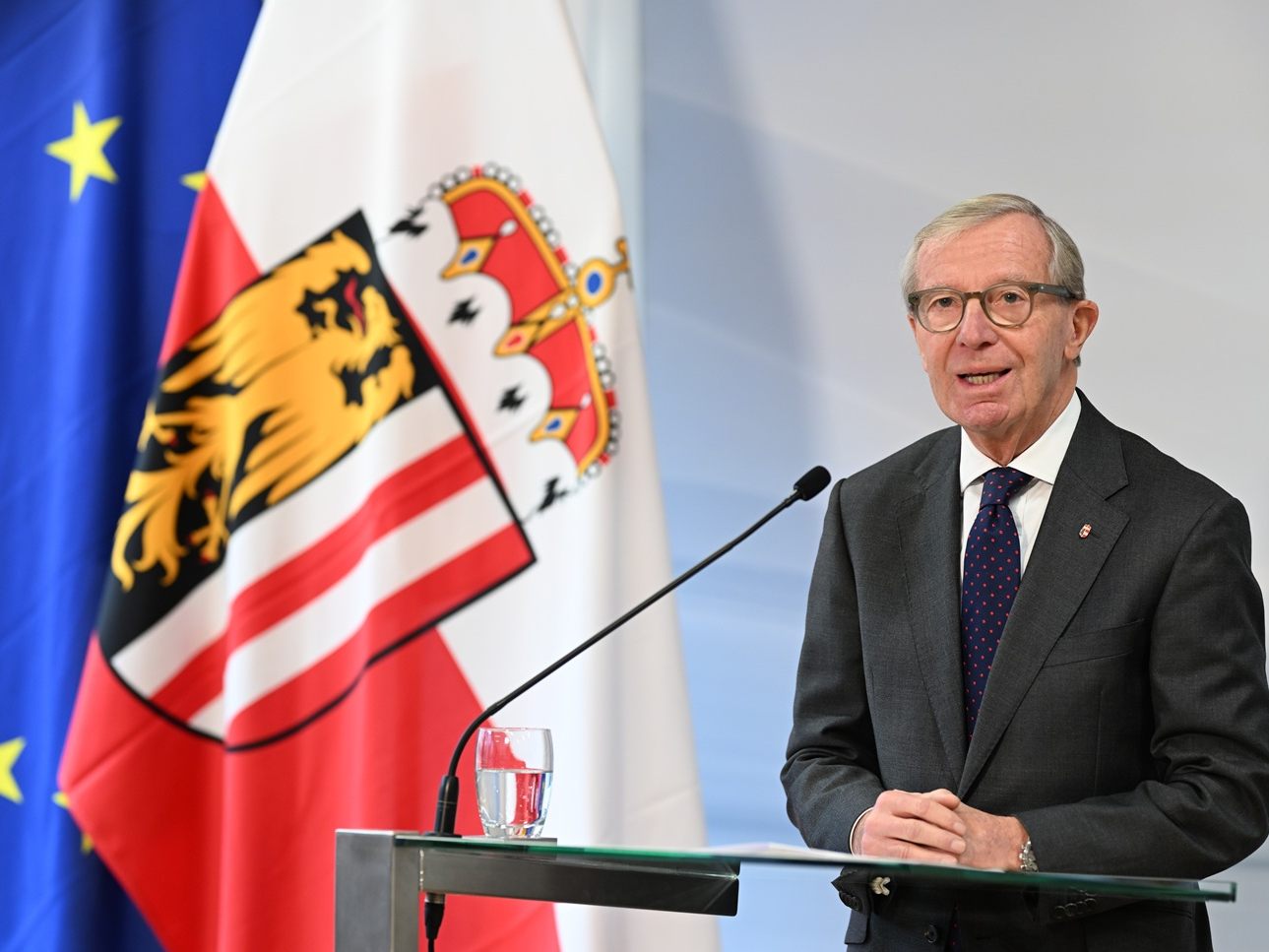```html
New Government: Voices from the Federal States
```

Salzburg's Governor Wilfried Haslauer (ÖVP), currently the chairman of the state governors' conference, extends a hand to the new federal government: He wishes the new government much success and "reaffirms the willingness of the state governors' conference for constructive cooperation in the interest of our country," said Haslauer.
The Salzburg governor expressed his delight that "a path for a broad government of the center could be found, which will tackle the pressing challenges our country faces with a stable majority in the National Council." There is much to do, and he is convinced that Christian Stocker as Federal Chancellor is the right man.
Stocker: "Time to Act"
Upper Austria's Governor Thomas Stelzer (ÖVP) also stated that after the long negotiations, it is now "time to act." This is especially necessary "to revitalize and further develop Austria as a location for business, work, and innovation. This is also a focus in the new government program."
For Vorarlberg's Governor Markus Wallner (ÖVP), it was also high time "to get into action, tackle important issues, and implement forward-looking projects for Austria and Vorarlberg." He specifically mentioned stimulating the economy and budget consolidation. It is right and crucial that the new government program anchors the promotion of personal responsibility, commitment, and performance. "Furthermore, I support the agreement on clear rules in the area of immigration and asylum, where our 'Vorarlberg Code' served as a model," said Wallner.
Burgenland's Governor Hans Peter Doskozil (SPÖ) stated that the three-party coalition will be "measured by its actions." At the same time, he emphasized that a "government with a savings program should also save on itself": "Anything else would be perceived by the people in Austria as mockery." Doskozil expressed "some skepticism" about the stability of the new government - given "previous coalition experiences with the ÖVP," as he noted. Regarding the content, the topics of care, health, and migration are crucial. For example, clear perspectives for sustainable hospital financing are needed. It must also be ensured that "the budget debacle left by the ÖVP" is not resolved at the expense of the population. He intends to closely monitor the plans in the pension sector. The Burgenland SPÖ state party leader criticized the public internal SPÖ discussion about appointments: "From my point of view, it is a matter of course that the party chairman selects his government personnel himself. He also bears full responsibility for the success of this team. Public calls or crossfire are therefore out of place."
"With the new federal government, there is hope that it will not only tackle the major challenges in our country but also get them under control," stated Lower Austria's Governor Johanna Mikl-Leitner (ÖVP). "Everything must be done immediately to revive the economy, secure jobs, and take action against those unwilling to integrate," she emphasized: "After the lengthy, conflict-ridden government negotiations of the past weeks, the three different partners must now pull together and immediately start working for the future of our country and our children."
Mattle: "Handwriting of Reason"
For Tyrol's Governor and ÖVP state party leader Anton Mattle, the newly presented government program bears "the handwriting of reason." It offers a "chance" for the "willingness to perform, the concept of ownership, competitiveness, and internal security to prevail" in this country. He himself contributed to the transit chapter. Mattle emphasized that the future federal government "clearly stands behind Tyrol" on the transit issue and referred to a commitment to anti-transit measures, the slot system along the Brenner corridor, and the expansion of the rail network. His deputy and acting SPÖ state party chairman, Philip Wohlgemuth, also saw a "positive chance for successful cooperation." It will be crucial that "all parties involved work together constructively."
Carinthia's Governor Peter Kaiser (SPÖ) assessed the government program "cautiously positive." It contains "some promising approaches to guide Austria economically and socially stable through an unstable global situation," said Kaiser. He particularly welcomed measures aimed at "securing jobs, making life affordable, further developing social security for all population groups, and strengthening Austria as a business location." At the same time, it is important to shape budget policy sustainably. And: Especially in asylum policy, "consistency is required": "We need practical solutions that combine a restrictive approach with humanity."
In contrast, Styrian FPÖ Governor Mario Kunasek missed "impulses for the economy and strengthening of the states" in the presented program, as he stated in a release. The announcement of a reform process for financial equalization is still very vague - but there urgently needs to be a fair distribution of tasks and budget resources to the states. "The next federal financial equalization must urgently lead to a correction of the financial disadvantage of Styria. The inflow of funds must be greater, and the tasks of the states reduced. The state and municipalities have already exceeded the burden limit. It is therefore to be hoped that the announced reform group does not get stuck in a circle of chairs." In the asylum area, it was neglected to take the Styrian path and make Austria as unattractive as possible for asylum seekers. Instead, asylum seekers should be integrated from the first day, without waiting to see if they even get a residence permit: "Here, once again, taxpayers' money is being thrown out the window," he complained and added: "With 13 ministers and seven state secretaries, the new federal government will be as large and expensive as never before." Kunasek's deputy Manuela Khom (ÖVP) is meanwhile glad that there is a viable compromise.
(APA/Red)
This article has been automatically translated, read the original article here.





